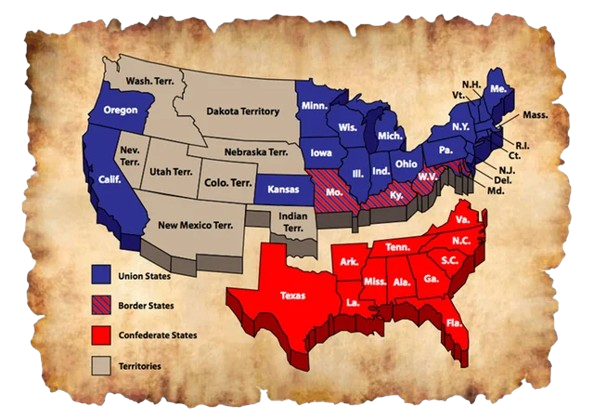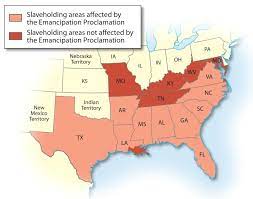Emancipation and the end of the war
1/14
There's no tags or description
Looks like no tags are added yet.
Name | Mastery | Learn | Test | Matching | Spaced | Call with Kai |
|---|
No analytics yet
Send a link to your students to track their progress
15 Terms
when was slavery introduced to the US
1619
where were the majority of slaves in the 13 colonies
South
how much was an enslaved person counted as in the US Constitution
3/5th of a person
to even out the House of Representatives
declaration of independence 1776
“all men are created equal”
10th amendment
any rights not given to the federal government are given to the state
Civil War
1861 – 1865
Fought mainly over slavery and states’ rights. Southern states (Confederacy) wanted to preserve slavery; the Union (North) fought to preserve the U.S. and later to abolish slavery

secession
the act of Southern states withdrawing from the Union primarily to protect the institution of slavery, leading to the Civil War
the 11 states who tried to secede from the US became known as the Confederacy
Abraham Lincoln
elected 12th potus 1860 and took office in 1861
president 1861-1865
African Americans gained legal civil rights when
1865-1870
African American population by the end of 18th century
20% of total population of 13 original states
19th century cotton-based economy growth for the South meant
states’ dependence on slave labour
abolitionist movement
the earliest movement demanding abolition of slaves dating from 1817 when the American Colonisation Society demanded a gradual emancipation of the slaves with compensation for their owners
most supporters of abolition resided in the northern states
despite this a significant % of the population was hostile to African-American equality
1854 federal system
the Republican Party with its base of support in the North was formed as a party opposed to slavery
by contrast the Democrat Party is strong in the South and especially among plantation owners was split over the question
Emancipation Proclamation
1862
black people could no longer be owned as property by others and were free to leave their masters
resulted in slaves continuing to leave their plantations
freed slaves in rebel-held territory in the South

13th ammendment
1865
by now all slaves were formally freed
turning point in progress of AA towards securing a better life
the abolition of slavery
led to unleashing 3.5m former slaves into society